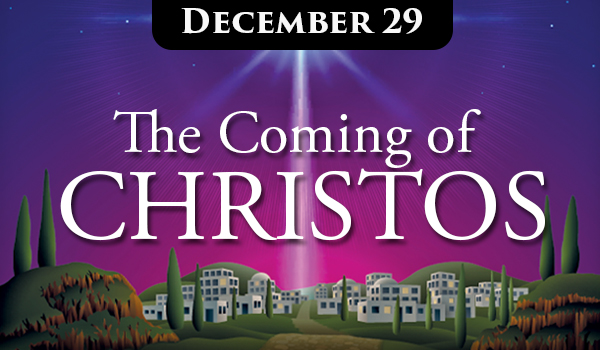For God did not send his Son into the world to condemn the world,
but to save the world through him.
John 3:17
I hope you have been blessed by this in-depth look at the stories surrounding the birth of Jesus. Perhaps you’ve been able to further understand and appreciate the genealogies, prophecies, and intertwined lives of Jesus and John the Baptist.
We cheat ourselves and our witness to the world when we focus on certain aspects of the narrative and compile them into one starry night of fabricated details. In actuality, our study this month has looked at the conception of John the Baptist to Jesus at 40 days old to the visit by the Magi and so on—a span of up to or even beyond three years.
While this journey is worthwhile, it is interesting to mention again that the early church did not celebrate Jesus’ birth. Rather, His death and resurrection were deemed far more important to commemorate. It’s true: coming in bodily form was only the first step for God Incarnate. Jesus’ death on the cross was the act that crucified our sins and His resurrection defeated those sins for eternity. And because of His ascension, He gave believers the Holy Spirit to guide our daily living until either our heaven-going or Jesus’ Second Coming.
Having said this, I do think it is perfectly okay for us to celebrate Jesus’ birth. Let me encourage you going forward to do so keeping in mind the broader context of all that He was, is, and ever will be.
As I mentioned in the introduction, we don’t need to focus too much on the different theories and opinions over actual dates or unclear details of His birth. However, I will share one interesting possibility with you for the purpose of focusing one last time on the Messiah, Christos.
For reasons too long and laborious to list here, there are those who believe that Jesus was actually born on the Feast of Tabernacles. This is the most celebratory of the Jewish feasts, occurring over eight days in September of each year. The Jewish people would erect booths (somewhat like canopies), celebrate the harvest, and make offerings to the Lord.
Would it not be an appropriate occasion in history for this glorious day of Jesus’ birth to occur on the first day of the Feast of Tabernacles and culminate on the eighth day when Jesus was named and circumcised? What a glorious week!
Regardless of whether Jesus was born on December 25th or not, here’s the point: the birth of Jesus is the arrival of Immanuel, God with us. Christ came to earth to tabernacle with mankind. As we’ve already read in John 1, Christ “became flesh and made his dwelling among us.” He will do so again for a second and final time. Amen. Come, Lord Jesus!
